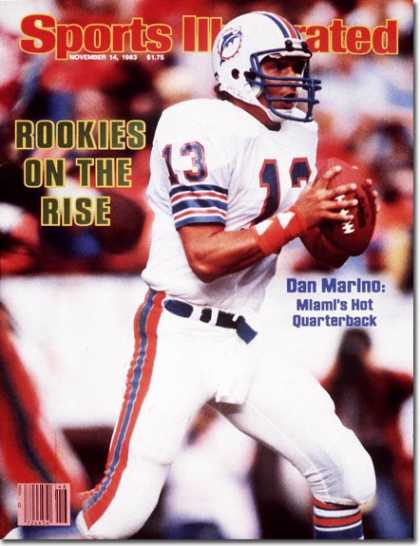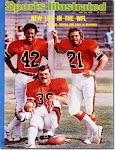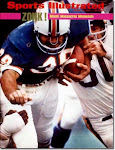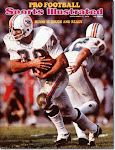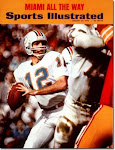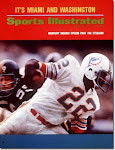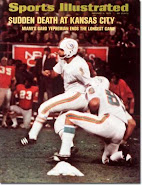I was fortunate enough to swing by the Aventura library branch in 2005, before the series of hurricanes laid it down and out-for-the-count, and secure a copy (in very good condition) of this well-received book by Maureen Dowd's Catholic University classmate, Lewis Libby, for about 75 cents or so. I read it a few times before Scooter was ever indicted. (See David Frum's insightful comments on this case at http://frum.nationalreview.com/as well as Plan of Attack - Google Books Result by Bob Woodward - 2004
Unlike his bosses, Libby had graduated magna cum laude. He had written a little noticed novel in 1996, The Apprentice, an adventure tale with some erotic ...books.google.com/books?isbn=0743262875... )Lest you forget, the underlying crime for which Chicago prosecutor Patrick Fitzgerald was supposed to be investigating -and which has cost Lewis Libby a reported $5 million dollars in legal fees- was the crime of publicly leaking supposed-covert CIA NOC employee/desk jockey Valerie Plame's name, was committed by Richard Armitage, former Secretary of State Colin Powell's top assistant. But then Fitzgerald already knew that before Libby was ever indicted. Armitage, of course, has yet to be indicted and Powell has yet to say publicly -under oath- when he first knew that his aide was the person that was responsible for this whole controversy, or even more to the point of Powell's integrity and character, what he specifically advised Armitage when first given the true facts.That nobody of any prominence, say the King of Conventional Wisdom, David Broder, has asked about this sort of thing publicly in their columns only shows the true strength of commitment Colin Powell secured from the national media he tamed years ago thru his selective and assiduous use of the unattributed quote to level people below the knees.


____________________________
http://query.nytimes.com/gst/fullpage.html?res=9404E2DB1339F930A35752C1A960958260November 3, 1996
Books in Brief: Fiction
By ERIK BURNS
THE APPRENTICE By Lewis Libby. Graywolf, $22.95.
At the turn of the century in the snowy highlands of Japan, a strange adventure unfolds: Setsuo, a young man who is an apprentice at a remote inn, falls in love with an overnight guest, the delicately beautiful Yukiko, one of a roaming troupe of actors. They come together in the middle of a blizzard, a ferocious storm that ensnares a strange group of travelers.
With delicate prose and stirring descriptive passages, Lewis Libby elevates the youth's narrative to the level of myth, setting his confused adolescent reactions to love at first sight against the mysterious goings-on of the other travelers. At the center of these is a bearded man who dashes off into the storm, followed by a hunter who is later discovered dead, his throat cut.
Unbeknown to Setsuo, his frantic pursuit of these strange guests entangles him in shadowy political intrigue. Questions abound: Who is the bearded man? What is in the small box Setsuo finds? Why are killers creeping around the snowy village, searching everywhere?
Mr. Libby's storytelling skill neatly mixes these conspiratorial murmurs with the boy's emotional turmoil: his heartache and confusion become part of a larger emotional landscape.
Erik Burns______________________________________________
The Washington Post
http://www.washingtonpost.com/wp-dyn/content/article/2005/10/22/AR2005102201439_pf.htmlCorrection to This Article
In some Oct. 23 editions, an article about I. Lewis "Scooter" Libby incorrectly reported that he has two sons. He has a son and a daughter. Also, the law firm of Dechert, Price and Rhoads, where Libby once worked, was misidentified.
In the Spotlight And on the Spot Scooter Libby, Backstage No More
By Mark Leibovich, Washington Post Staff Writer
Sunday, October 23, 2005; A01
I. Lewis "Scooter" Libby is known for his sarcastic, world-weary and at times dark sense of humor. He once quipped to an aide that he planned to stay as Vice President Cheney's top adviser until "I get indicted or something."
That was during President Bush's first term, brighter days for the administration and, more to the point, before a special prosecutor was investigating Libby's possible role in disclosing the identity of a covert CIA officer, Valerie Plame.
The joke -- recounted by the aide, who no longer works in the administration -- sounded absurd at the time, given Libby's renown for canniness and prudence. He adheres to a favorite Cheney maxim that the vice president credits to the late Sam Rayburn, a longtime House speaker: "You never get in trouble for something you don't say."
Yet Libby could find himself in big trouble for saying too much. And this jibes with a lesser-known side of Libby, the audacious novelist and daredevil skier who has long been gripped with concern about exotic terrorist scenarios; who fervently argues his own viewpoints, particularly on matters of foreign policy; and who can become, friends and associates say, overly passionate in the face of opposing ones.
Libby, 55, has displayed this aspect of himself in a series of heady stations throughout his career -- at the State Department, the Pentagon and, for the past five years, in the Bush administration. Reporters have seen this side of Libby, too, in his full animated conviction. But almost always on deep background, out of public view.
Now Libby's cover of anonymity is blown -- and for possibly blowing the cover of a CIA operative. People close to Libby point out the incongruity of the whole thing.
"He's always been excruciatingly careful, which is ironic in his situation," says World Bank chief Paul Wolfowitz, a former deputy secretary of defense and a longtime mentor of Libby's.
The "situation," of course, refers to the Plame case. Prosecutor Patrick Fitzgerald is said to be focused on whether Libby and presidential adviser Karl Rove had a part in divulging Plame's identity in an attempt to discredit her husband, retired diplomat Joseph Wilson.
Wilson, who undertook a mission to Africa in 2002, was widely critical of the Bush administration's claims that Iraq had tried to obtain uranium from Niger. Fitzgerald is investigating whether officials in the administration sought to undermine Wilson by outing his wife.
Libby has testified in at least two grand jury appearances about his conversations with reporters on the Plame matter -- including two from The Washington Post. He also spoke at least three times with the New York Times's Judith Miller, who spent 85 days in jail before accepting permission from Libby to tell the grand jury about their conversations. The Times published a nearly 6,000-word account last Sunday about Miller's dealings with Libby. The story revealed that the misspelled moniker "Valerie Flame" appeared in the same notebook Miller used during an interview with Libby. (In a separate first-person article, Miller wrote she told the grand jury that she believed the name came from another source, whom she could not recall.)
The grand jury's term expires next Friday, and Fitzgerald is expected to reveal his intentions in a matter of days.
Friends describe Libby as engaging and unfailingly chivalrous; it is his habit to stand when a female dining partner excuses herself. He is diligent about returning reporters' calls, albeit on deep background and, in most cases, "telling you absolutely nothing," says William Kristol, a conservative columnist and longtime acquaintance of Libby's who served as chief of staff to Vice President Quayle. Kristol says Libby "is someone who would seem to spend a lot of effort at not getting caught up in something like this."
Libby, who declined to be interviewed for this story, is taut and compact, with small eyes and a short mop of graying brown hair. As has been the case through much of his career, he works long hours and complains that he doesn't see enough of his wife and two children. He's been hobbled after breaking a bone in his foot while running up stairs. He has looked gaunt and tired of late, according to those who have seen him, and he told at least two friends and associates that he was thinking of leaving the administration after the 2004 election to spend more time writing and skiing.
But those plans would seem to be on hold, at least until the Plame case is settled.
Among vice-presidential aides throughout history, Libby is distinctive for the power and authority he wields, a product largely of Cheney's outsize role in the Bush administration. Libby holds three titles: chief of staff and national security adviser to Cheney, and assistant to Bush. Like few other advisers, he attends the highest level of White House meetings. He attends the weekly gathering of Bush's top economic advisers and -- according to Bob Woodward's book "Plan of Attack," about the Bush administration's run-up to the Iraq war -- was one of two non-principals who attended National Security Council meetings with the president after Sept. 11, 2001 (the other was Condoleezza Rice's then-deputy, Stephen Hadley).
In these meetings, Libby rarely speaks. He fixes his eyes on whomever is talking and often presses his fingers over his lips. "He sits there in the background with this little half-smile," says former senator Alan Simpson, the Wyoming Republican and one of Cheney's closest friends. Cheney vacations in Wyoming, and Libby usually goes along. "He's a dissector," Simpson says of Libby. "He is the ultimate, clinical professional."
Then there is the Libby whom Cheney adviser Mary Matalin calls "the other Scooter" and "the man who you pray you get seated next to at a dinner party."
It took him 20 years to complete "The Apprentice," a soaring, erotically charged novel set in rural Japan during a blizzard in 1903. "I went out to Colorado, drank tequila and wrote," Libby told CNN's Larry King in 2002 in a rare television interview, the bulk of which he spent discussing the 1996 novel, which had just been issued in paperback.
Wolfowitz, Libby's political science professor at Yale in the 1970s, recalls Libby telling him that "The Apprentice" was originally set in Vermont, but he eventually decided it would work better in Japan. He threw 300 pages away and started again.
The author's "storytelling skill neatly mixes conspiratorial murmurs with a boy's emotional turmoil," the New York Times Book Review said of the novel.
A more recent piece of Libby's writing also drew attention, if not acclaim.
"You went to jail in the summer," Libby wrote in a letter to Miller, waxing pastoral after he freed her to speak to the grand jury about their conversations. "It is fall now. . . . Out west, where you vacation, the aspens will already be turning. They turn in clusters, because their roots connect them. Come back to work -- and life."
The spy-novel dexterity of Libby's mind and the odd flamboyance of his prose raised questions that he might have been trying to say something more.
"How do I interpret that?" Fitzgerald asked Miller during her grand jury testimony, according to her account in the Times.
Friends say Libby cultivates an enigmatic bearing, one epitomized at the end of Miller's first-person account. She tells of her last face-to-face encounter with Libby, in August 2003 in Jackson Hole, Wyo., after she had attended a conference in Aspen, Colo. "At a rodeo one afternoon, a man in jeans, a cowboy hat and sunglasses approached me," Miller wrote. "He asked me how the Aspen conference had gone. I had no idea who he was.
" 'Judy,' he said. 'It's Scooter Libby.' "
Several aspects of Libby are subject to varied interpretations, or at the very least, casual mystery. Libby is loath to disclose -- even to close friends -- what the "I" stands for in his name. Matalin credits USA Today with "breaking" the story that Libby's first name is "Irv" (though other publications had reported "Irving" and public databases list him as "Irve").
Cheney's office would not confirm or deny what the "I" stands for.
Likewise, there are differing accounts of where "Scooter" comes from. He told the New York Times in 2002 that his father, an investment banker now deceased, coined it upon seeing him crawl across his crib. The same year, in an interview with King, Libby spoke of a childhood comparison to New York Yankees Hall of Fame shortstop Phil "Scooter" Rizzuto ("I had the range but not the arm," Libby said).
Libby was born in New Haven, Conn., raised in Florida and -- like Bush -- attended prep school at Phillips Andover and college at Yale. He lives in McLean with his children and wife, Harriet Grant, a former lawyer on the Democratic staff of the Senate Judiciary Committee. Until he broke his foot, Libby played in a weekly touch football game in Chevy Chase.
After graduating from Columbia Law School, Libby was practicing law in Philadelphia in 1981 when Wolfowitz, then an assistant secretary of state, recruited him as a speech writer. At the time, Libby was reading William Stevenson's "A Man Called Intrepid," which described the British and American spy operation before and during World War II. "The characters' lives seemed considerably more exciting and meaningful than Libby's work in Philadelphia," wrote James Mann in the 2004 book "Rise of the Vulcans: The History of Bush's War Cabinet."
Libby also worked for Wolfowitz during Wolfowitz's stint as policy undersecretary of defense during the first Bush administration. He had long been interested in unconventional warfare, particularly in the Middle East, and his portfolio included the biological and chemical capabilities of Saddam Hussein. Cheney, then secretary of defense, shared Libby's interest in weapons of mass destruction and was, according to a Pentagon official of that era, impressed by his diligence and analytical skill.
It was during the Gulf War that Miller also took notice of Libby. In a book that she co-wrote, "Germs: Biological Weapons and America's Secret War," Libby is described as "a trim, boyish lawyer" who was frustrated that intelligence reports about Iraq's biological weapons program contained words like "probably" and "possibly."
"Libby," the book said, "told colleagues that intelligence analysts had an unfortunate habit: If they did not see a report on something, they assumed it did not exist."
The Gulf War era integrated several themes that have pervaded Libby's career: his interest in Iraq and weapons of mass destruction, his frustration with the U.S. intelligence apparatus and his willingness to make leaps and support preemptive action. He shared the disappointment of his Pentagon bosses -- Wolfowitz and Cheney -- that the U.S. effort in the Gulf War had not toppled Hussein.
During the Clinton years, Libby practiced law at the Washington office of Dechert, Price and Rhoads, where he represented Marc Rich, the fugitive billionaire whom Clinton pardoned hours before he left office. Libby was called to testify before a congressional committee investigating Clinton's pardons during the first months of the Bush administration.
The Sept. 11, 2001, attacks confirmed Libby's long-held view that Islamic terrorism was the foremost threat of the post-Cold War era. He had studied the topic for years and had spoken often of its horrific perils to the United States. "I was hounded by Scooter about what we were doing about things like anthrax," Wolfowitz says, referring to 2002. "He was very concerned about what he saw as a general lack of preparedness."
Libby greatly admires the work of Victor Davis Hanson, a classicist and military historian who posits that warfare is an inevitable part of civilization, evil is a basic condition of humanity, and tyrants must be confronted by the harshest possible means. (In late 2002, a few months before the Iraq invasion, Cheney -- also a Hanson devotee -- invited the historian to the vice president's mansion for a small dinner gathering that included Libby.)
Hanson's stark perspective comports with Libby's view on Iraq. He was among the administration's fiercest proponents of the invasion, and his office prepared a 48-page document of intelligence on Iraq WMDs for Secretary of State Colin Powell's speech to the United Nations in February 2003. (Powell couldn't confirm a lot of the data and wound up not using much of it.)
In his office in the Old Executive Office Building -- once occupied by Theodore and Franklin Roosevelt during their respective stints as assistant secretaries of the Navy -- Libby keeps a photograph of Winston Churchill. Like Wolfowitz, Cheney and many of the Bush administration's Iraq hawks, Libby reveres Churchill for his willingness to confront evil boldly and his unwillingness to compromise. In a December 2001 interview with James Mann, Libby read from "The Gathering Storm," Churchill's memoir of the years preceding World War II. "I felt as though I were walking with destiny," Churchill wrote of the moment he became the British prime minister, "and that all my past life had been a preparation for the hour and for this trial."
That passage, Libby told Mann, could also have applied to his boss, Cheney, on Sept. 11.
In this context of urgency, Libby can be impatient. And, associates say, he could become infuriated over discordant views over Iraq, both from within and outside the administration. On Friday the Los Angeles Times -- quoting former aides -- reported that Libby became so enraged about Wilson's public statements that he monitored all of the former ambassador's television appearances and urged the administration to wage an aggressive campaign against him. (Cheney's office declined to comment on the report.)
Friends and associates say Libby remains unbowed about the U.S. action in Iraq, and despite the setbacks of recent months has shown no hint of doubt. In times of travail, Libby recalls the excitement of his job and the grandeur of his mission.
"Cheney and Scooter play chess on several different levels," Matalin says. "That's how their minds work. It's not about what's right in front of him. They look at things in the sweep of history.
"The Wilson thing was almost mosquitoesque."
Researcher Meg Smith contributed to this report.
© 2005 The Washington Post Company
______________________________

 The Varsity Shop is proud to be the official store for IU gear and apparel. Proceeds support IU Athletics.
The Varsity Shop is proud to be the official store for IU gear and apparel. Proceeds support IU Athletics.

 The Varsity Shop is proud to be the official store for IU gear and apparel. Proceeds support IU Athletics.
The Varsity Shop is proud to be the official store for IU gear and apparel. Proceeds support IU Athletics.

 ____________________________
____________________________

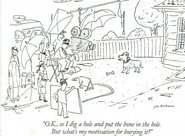





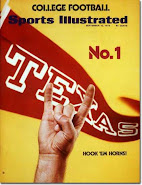
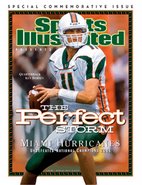
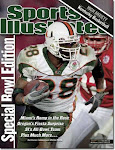
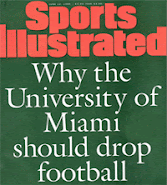
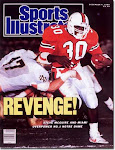
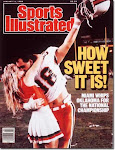
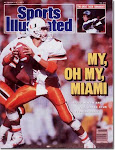

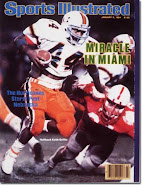
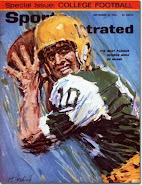
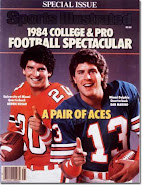

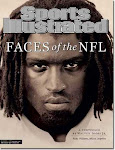
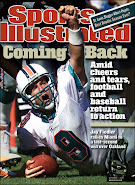
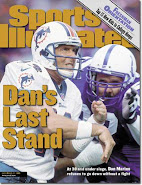
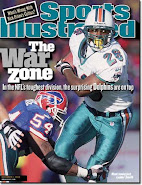
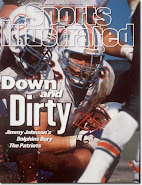

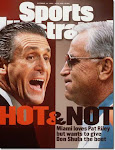
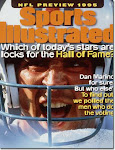
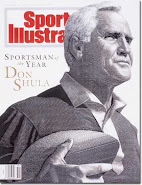
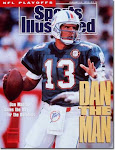
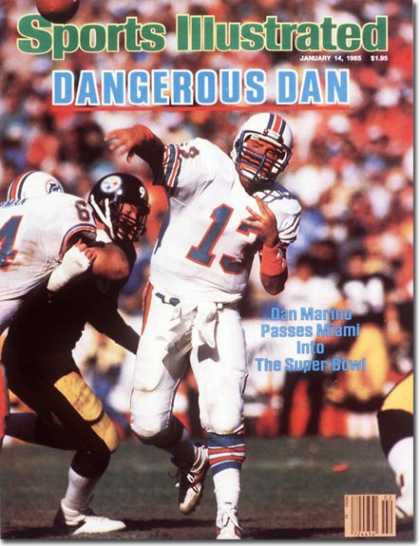

+Sep+10,+1984.jpg)
